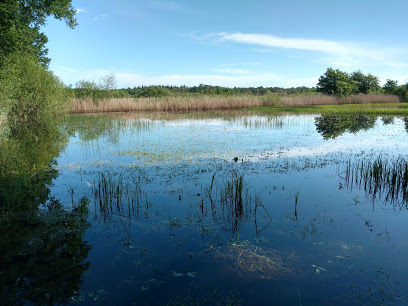The wet pulp of Het Wik consists of 19 pools. It has been built for long-time fish farming or as a result of iron ore extraction earlier. Zusterkloosterbeek provides all water basins through a masterful system of canals, channels, locks and floods. Two important sources in the neighborhood are also responsible for the water supply.
A wide range of aquatic plants and banks is due to the richness of food. As Zusterkloosterbeek enters Wik, the water will be richer with nutrients. Natural purification and the mixing of groundwater ensures that it gradually decreases downstream.
Animals and plants
Wik is a nature reserve with exceptional natural wealth, located in the eastern part of the Bokrijk region. This wealth is mainly due to a wide range of different species: reeds, ponds, obstacles, Alder pants, intractable birch forests, stormy stalagmites, etc. Water-related species such as Great Bladderwort, Floating Hedgehog's Head and Floating Water Plantain make florists wonderful, while nature lovers enjoy the broad yellow flowering flower and white water lily. The dam plants are characterized by more Kempen character with rubbing, common heather, red berries and berries. By teasing, species such as the mossy wolf claws, peat flakes, red desert, and small sunsets and round are developing in their full glory.
Amphibians also have more opportunities here. There is currently a rare frog area for swimming and a natterjack frog. But there is also a large presence of the common frog and brown frog. The well-established frog plays well and the rare frog loves its presence in the region. Reproduction in the region comes every year. The forest monkey, the porcelain arch, the waterways, the fish arcades and many other species have become regular guests. The number of singing in small care centers is unusual, and if you are lucky, you can see the mustache here. Early in the morning you can see the deer pass.
The large numbers of dragonflies above the ponds attracted the tree hawk as breeding birds. Bone sometimes lasts in plaster for weeks in spring and fall.
Nature Management
Appropriate water levels and good management of well-developed fish and riparian plants provide a wide range of water and wetland birds. Wik Management was comprehensively addressed in the 1990s. Fish farming has been phased out, and ponds have been given more environmental management, which has of course been a unique opportunity for amphibians and local fish species. For example, Wik still has one of the few sites where a large clay crawler occurs. Forests have also been treated. American bird cherries were taken away and American oak was replaced with ash


